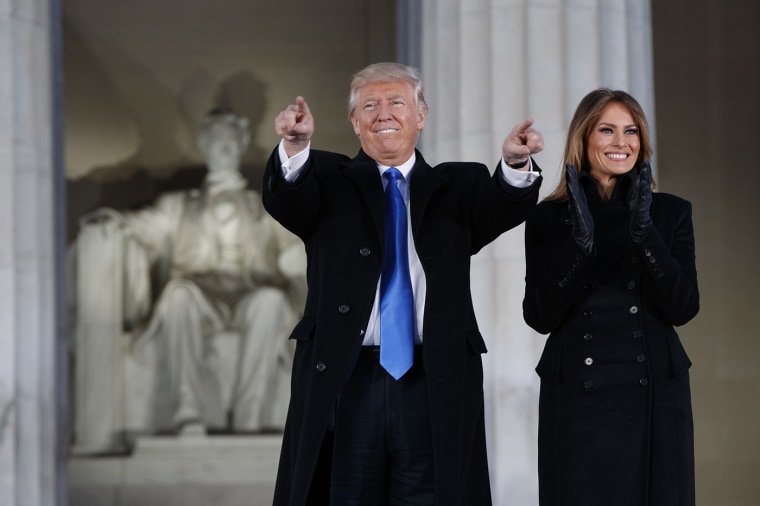The New York Times' David Brooks suggested today he's a little surprised by Donald Trump's White House agenda. "The Trump health care and budget plans will be harsh on the poor, which we expected," the center-right columnist wrote. "But they'll also be harsh on the working class, which we didn't."Let's not be too cavalier about using the word "we." Some of us predicted precisely what we're seeing from the Republican president.One of the great challenges of the burgeoning Trump era is deciphering the real-world meaning of the president's rhetoric. Two months ago, in Trump's inaugural address, for example, he spoke about his vision for taking power and "giving it back to you, the American people." Describing the recent past, he said, "Washington flourished, but the people did not share in its wealth.... Their victories have not been your victories; their triumphs have not been your triumphs; and while they celebrated in our nation's Capital, there was little to celebrate for struggling families all across our land. That all changes, starting right here, and right now, because this moment is your moment: it belongs to you.... The forgotten men and women of our country will be forgotten no longer."For those who took Trump's rhetoric at face value, and believed that he sincerely intended to be a populist champion of working people, I imagine the reality of the president's agenda must be quite jarring. The "forgotten men and women" of the United States -- the struggling people who have not "shared" in the nation's wealth -- would be punished severely by this White House agenda.The Washington Post reported yesterday:
Trump has unveiled a budget that would slash or abolish programs that have provided low-income Americans with help on virtually all fronts, including affordable housing, banking, weatherizing homes, job training, paying home heating oil bills, and obtaining legal counsel in civil matters. [...]The White House budget cuts will fall hardest on the rural and small town communities that Trump won, where 1 in 3 people are living paycheck to paycheck -- a rate that is 24 percent higher than in urban counties, according to a new analysis by the center.
A New York Times report added, "The approach is a risky gamble for Mr. Trump, whose victory in November came in part by assembling a coalition that included low-income workers who rely on many of the programs that he now proposes to slash." (The budget would be especially brutal towards struggling families in Appalachia, where Trump won by overwhelming margins.)Those who believed the president when he said, "The forgotten men and women of our country will be forgotten no longer" may have missed the fine print: under Trump, you're on your own.For those who've characterized Trump as a "populist" -- as some continue to do -- this is a gut-check moment. As we discussed several months ago, Team Trump likes to present itself as a scourge of the elite, but it's become painfully obvious what that means in practical terms.For most of us, a fight pitting elitism against populism is about wealth and distribution of resources. When far-right billionaires push an agenda of tax cuts for the wealthy, deregulation of Wall Street, and gutting families’ health security, it’s elitism. When policymakers fight for proposals that advance the interests of working people, it’s populism.For Trump and his team, all of this is backwards. The conflict between elitism against populism is about attitude. Forget policies and their effects, the Republican team tells us, and focus instead on tone and style. The president likes to present himself as a champion of regular people who’ve been ignored by the elites, and whether or not that makes substantive sense is unimportant.But that's what makes his budget so significant: it's a statement of priorities in black and white. This a moral document, as the cliche goes, bringing Trump's vision into sharp focus, and shredding the idea of a "populist revolt."Working-class voters who believed Trump would be their champion fell for an ugly con, which the White House itself brought into the light this week.
